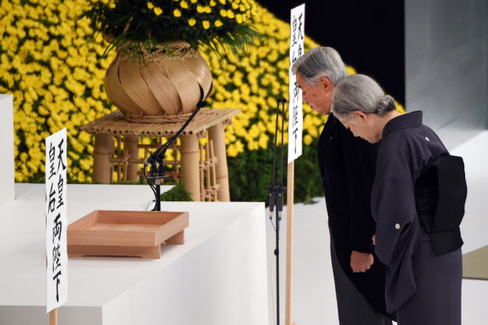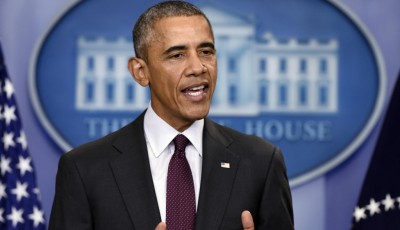Japan observes 70th anniversary of its defeat in WWII
Japan marked 70 years on Saturday since the end of World War Two but faced criticism from South Korea and China, which accused it of failing to properly atone for its actions during the war.
Abe sent a ritual offering to the shrine which is dedicated to millions of Japanese who died in conflicts – including more than a dozen war criminals.
Japanese Emperor Akihito yesterday, for the first time, expressed “deep remorse” over Japan’s role in World War Two.
Mr Abe had expressed profound grief and honest condolences for those who perished during the War.
“In order to manifest such feelings through concrete actions, we have engraved in our hearts the histories of suffering of the people in Asia as our neighbours”, he said.
“Japan should have given a clear account of the nature of the aggression war launched by Japanese militarists and its responsibility, offered honest apologies to people of countries that suffered in the war, and broken with the militarism past rather than glossing over history”, said Foreign Ministry spokesperson Hua Chunying.
“Our country today enjoys peace and prosperity, thanks to the ceaseless efforts made by the people of Japan towards recovery from the devastation of the war and towards development, always backed by their earnest desire for the continuation of peace”, Akihito said Saturday.
Japan’s ministers in charge of women’s empowerment and internal affairs and communications were among those who visited the controversial Yasukuni shrine.
“Instead of offering an unambiguous apology, Abe’s statement is rife with rhetorical twists… dead giveaways of his deep-rooted historical revisionism, which has haunted Japan’s neighborhood relations”, the Xinhua article says.
South Korean President Park Geun-hye said the Japanese premier’s remarks “left much to be desired”.
In a closely watched speech on the eve of the 70th anniversary of Japan’s surrender, Mr Abe said in a televised speech that in the 1930s the nation “took the wrong course and advanced along the road to war”.
“We must not let our children, grandchildren and even further generations to come, who had nothing to do with that war, be predestined to apologise”, he said.
However, a recent report by an expert panel advising Abe on his statement described Japan’s wartime activities as aggression. More broadly, Tokyo has also been keen to put to rest the ghost of its wartime atrocities, with some going so far as to downplay or deny the use of “comfort women” – or sex slaves – in military brothels.
Japanese lawmakers visit the Yasukuni Shrine in Tokyo, Japan, August 15, 2015. Calling Mr Abe’s speech an attempt “to cover up past crimes”, a North Korean spokesman said: “We categorically denounce and reject such an act of Japan as a shameless act challenging our sovereignty and dignity, worldwide justice and human conscience”.












